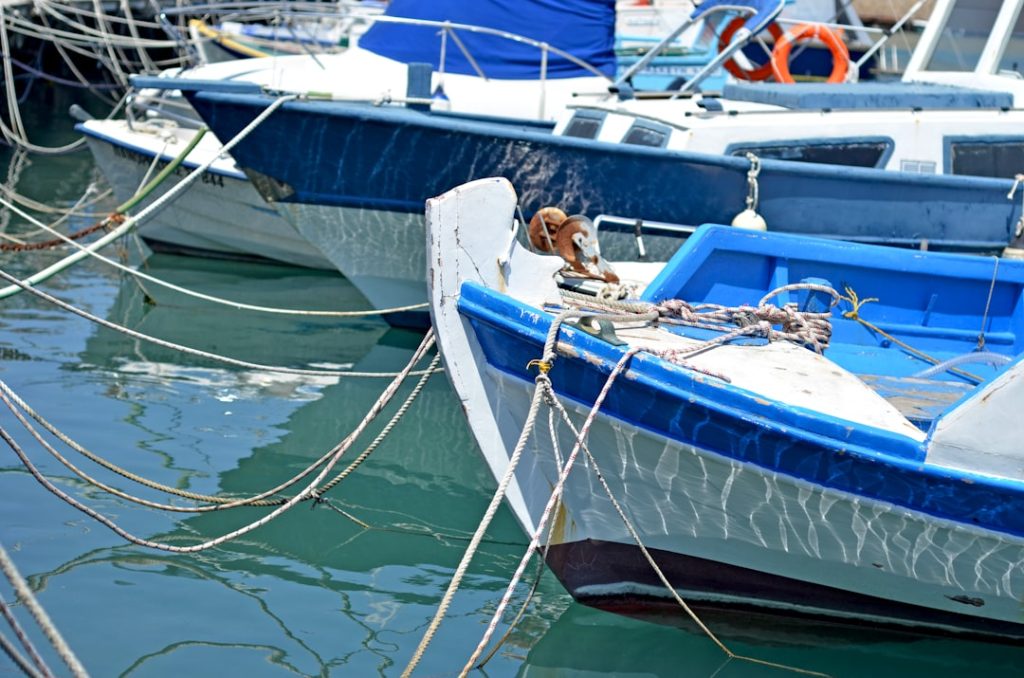When embarking on the journey to purchase a fishing boat, the first step is to clearly define your specific needs and preferences. This involves considering various factors such as the type of fishing you intend to pursue, the water conditions you will be navigating, and the number of passengers you plan to accommodate. For instance, if you are primarily interested in freshwater fishing in lakes and rivers, a smaller, more maneuverable boat may suffice.
Conversely, if your ambitions include deep-sea fishing, a larger vessel equipped with robust engines and advanced navigation systems will be essential. Additionally, think about the features that are important to you. Do you require ample storage for gear and equipment?
Will you need a live well for keeping bait alive? Are you looking for a boat that offers comfort for longer trips, such as seating and shade? Understanding these needs will not only help narrow down your options but also ensure that you invest in a boat that enhances your fishing experience rather than complicating it.
Furthermore, consider the maintenance and upkeep associated with different types of boats; some may require more attention than others, impacting your overall enjoyment and budget.
Key Takeaways
- Identify your specific fishing needs to choose the right boat type and features.
- Use local dealers, online listings, marinas, and boat shows to find available fishing boats.
- Weigh the pros and cons of new versus used boats based on budget and preferences.
- Carefully inspect and test boats before purchase to ensure quality and suitability.
- Plan financing, insurance, and ownership preparations for a smooth buying experience.
Researching Local Fishing Boat Dealers
Once you have a clear understanding of your fishing boat needs, the next step is to research local fishing boat dealers. This process involves identifying reputable dealers in your area who specialize in the type of boat you are interested in. Start by seeking recommendations from fellow anglers or local fishing clubs, as they can provide valuable insights into which dealers have a solid reputation for customer service and quality products.
Online reviews and ratings can also be instrumental in gauging the reliability of a dealer. Visiting local dealerships allows you to interact with knowledgeable staff who can answer your questions and provide guidance based on your specific requirements. Many dealers also offer a range of brands and models, giving you the opportunity to compare features and prices side by side.
Additionally, inquire about any ongoing promotions or financing options that may be available. Building a relationship with a local dealer can also be beneficial for future maintenance and service needs, as they will be familiar with your boat and its specifications.
Exploring Online Listings for Fishing Boats

In today’s digital age, exploring online listings for fishing boats has become an essential part of the purchasing process. Websites dedicated to boat sales often feature extensive inventories from both dealers and private sellers, allowing you to browse a wide variety of options from the comfort of your home. Popular platforms such as Boat Trader, Craigslist, and Facebook Marketplace can provide insights into pricing trends and availability in your area.
When searching online, it’s crucial to use specific keywords that align with your needs, such as “center console fishing boat” or “aluminum fishing boat under 20 feet.” This targeted approach will help filter out irrelevant listings and focus your search on boats that meet your criteria. Pay close attention to the details provided in each listing, including specifications, condition reports, and any included accessories. High-quality photographs can also give you a better sense of the boat’s condition.
However, while online listings are convenient, they should be complemented by thorough research and in-person inspections to ensure that you are making an informed decision.
Visiting Local Marinas and Boat Shows
| Metric | Value | Notes |
|---|---|---|
| Average Number of Visitors per Marina | 1,200 | Monthly average during peak season |
| Boat Shows Held Annually | 15 | Major regional and local events combined |
| Average Attendance at Boat Shows | 8,500 | Includes both public and industry attendees |
| Percentage of Visitors Interested in Purchasing | 35% | Based on visitor surveys |
| Average Time Spent at Marina | 2.5 hours | Includes leisure and shopping activities |
| Number of Boats Displayed at Shows | 120 | Varies by event size |
| Visitor Satisfaction Rate | 88% | Based on post-event feedback |
| Percentage of Repeat Visitors | 60% | Visitors returning within a year |
Visiting local marinas and attending boat shows can significantly enhance your understanding of available fishing boats and their features. Marinas often have a variety of boats docked that you can view up close, providing an opportunity to assess their size, layout, and overall condition. Engaging with boat owners at marinas can yield firsthand accounts of their experiences with different models, which can be invaluable when making your decision.
Boat shows are particularly beneficial as they gather numerous manufacturers and dealers under one roof, showcasing the latest innovations in fishing boats. These events often feature seminars and demonstrations that can deepen your knowledge about specific brands or technologies. Additionally, many boat shows offer exclusive deals or discounts that may not be available elsewhere.
By attending these events, you can compare multiple options side by side, ask questions directly to manufacturers or dealers, and even take advantage of test rides if available.
The decision between purchasing a new or used fishing boat is one of the most significant choices you will face during your buying journey. New boats come with the latest technology, warranties, and customization options that allow you to tailor the vessel to your exact specifications. They often feature improved fuel efficiency and safety features that enhance the overall experience on the water.
However, new boats also come with a higher price tag and depreciation that occurs as soon as they leave the dealership. On the other hand, used boats can offer excellent value for those on a budget or looking for specific models that may no longer be in production. A well-maintained used boat can provide many years of enjoyment at a fraction of the cost of a new one.
However, it is essential to conduct thorough research on the boat’s history, including previous ownership, maintenance records, and any repairs made. A used boat may require additional investments in upgrades or repairs that could offset initial savings. Ultimately, weighing the pros and cons of new versus used boats will depend on your financial situation, intended use, and personal preferences.
Evaluating Financing and Insurance Options
Financing a fishing boat is an important consideration that requires careful evaluation of your budget and financial options. Many dealers offer financing plans that can make purchasing a new or used boat more manageable by spreading payments over time. It’s advisable to shop around for financing options from banks or credit unions as well; comparing interest rates and terms can lead to significant savings over the life of the loan.
In addition to financing, securing insurance for your fishing boat is crucial for protecting your investment. Boat insurance policies vary widely in coverage options, including liability coverage for accidents involving other vessels or property damage, as well as comprehensive coverage for theft or damage to your own boat. When evaluating insurance options, consider factors such as the type of coverage needed based on how often you plan to use the boat and where it will be stored when not in use.
Consulting with an insurance agent who specializes in marine insurance can help clarify your options and ensure you select a policy that meets your needs.
Inspecting and Testing Potential Fishing Boats

Before finalizing any purchase, it is imperative to conduct thorough inspections and tests of potential fishing boats. For used boats, this means checking for signs of wear and tear such as hull damage, rust on metal components, or issues with the engine. A comprehensive inspection should include examining the electrical systems, plumbing (if applicable), and any onboard equipment like fish finders or GPS systems.
If you are not confident in assessing these aspects yourself, consider hiring a marine surveyor who can provide an expert evaluation. Testing the boat on the water is equally important; this allows you to assess its performance firsthand. Pay attention to how it handles at various speeds, its stability in different water conditions, and how comfortable it feels while underway.
Take note of any unusual noises or vibrations during operation that could indicate underlying issues. Additionally, testing out features such as seating arrangements and storage capacity will help ensure that the boat meets your practical needs while out fishing.
Making the Purchase and Preparing for Ownership
Once you have completed all necessary inspections and tests and have decided on a specific fishing boat, it’s time to make the purchase official. This process typically involves negotiating the final price with the dealer or seller and reviewing all paperwork carefully before signing anything. Ensure that all agreed-upon terms are documented clearly in the sales contract to avoid any misunderstandings later on.
After securing ownership of your new fishing boat, preparation for ownership begins in earnest. This includes registering the boat with local authorities and obtaining any necessary permits or licenses required for operation in your area. Familiarize yourself with local boating regulations to ensure compliance while on the water.
Additionally, consider investing in essential safety equipment such as life jackets, flares, fire extinguishers, and first aid kits before heading out on your first fishing trip. Taking these steps will not only enhance your safety but also ensure that you are fully prepared to enjoy countless memorable days on the water with family and friends.


